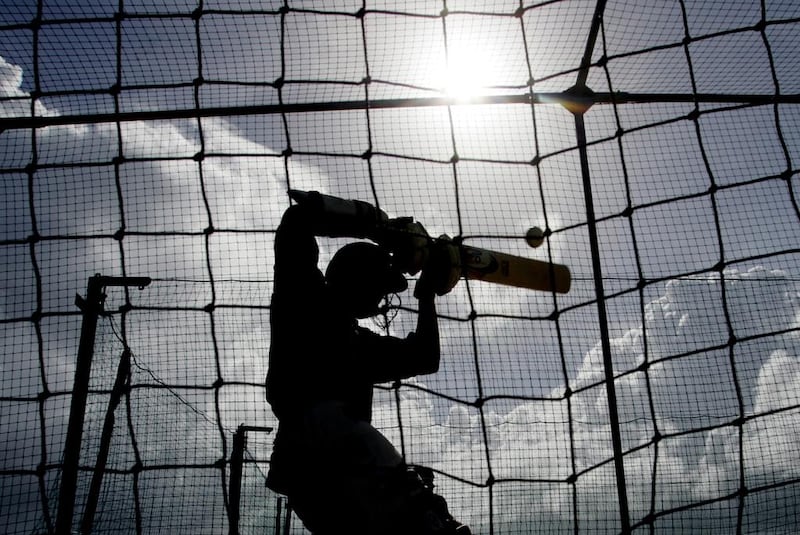Most people with even a passing knowledge of the way cricket runs concluded a week ago that, eventually, the “Big Three” would get their way.
Most might have preferred, however, that the name and spirit of Nelson Mandela might not have to be conjured in the same document that essentially sealed the last act of self-interest to complete what amounts to a hostile takeover.
Cricket South Africa (CSA) did what they felt they had to do. Pragmatism, like triumph and disaster, is a great impostor, one day the key to man's survival, another day his destruction.
Left behind are the Pakistan Cricket Board (PCB) and Sri Lanka Cricket (SLC). Both felt a little more strongly about it than they might be willing to say publicly.
One minute on Friday morning there were three opposers meeting and reaffirming their opposition, and the next, in an evening meeting, CSA were informing the other two they were out. There is no way to spin that kindly.
Alongside the disappointment, the feeling of being ditched, or cheated, there will also be a little envy among the two, because, sadly, that is the twisted nature of cricket administration.
CSA, from the sounds filtering out, got some of what they wanted, and could have got more. There is talk of Future Tours Programme (FTP) commitments with India, the hosting of an International Cricket Council (ICC) event, maybe even some of the Indian Premier League (IPL) this season, and a potential rehabilitation of Haroon Lorgat. They played the pretty poor hand they had and extracted something from it.
SLC and PCB? They salvaged a little crust of moral ground, which given their own track records is not entirely worthless or unimportant, but it is not security.
As a brief aside, think of the upside-downness of cricket right now that SLC and the PCB can genuinely claim some moral high ground.
But by abstaining instead of rejecting the proposals outright, they may have secured a place, any kind of place, in the new world.
Because until the night before the meeting, they were still in the mood to register a rejection vote.
A meeting with N Srinivasan on Saturday morning ahead of the main board meeting softened that.
There was none of the bullying or threats of previous weeks. With eight votes in hand, there was no need for Srinivasan to play hard.
Instead, it was the final pirouette of pragmatism. By abstaining, both SLC and PCB were allowed to save some face back home “by refusing to compromise on moral principles,” officials from both boards echoed, and garner some sympathy, too.
The door was also kept open by the new ICC. The two expressed their reservations on some resolutions, which Srinivasan said will be considered.
The financial model will not be touched, of course, but Srinivasan did apparently shed more light on the calculations behind them.
Both can now go back to their boards, spell out the new reality, come back and provide official approval at the April ICC board meeting. And official approval will be required, because the big three, from the start, have had a weird, paranoid pursuit of unanimity on these changes.
Perhaps they want the world to believe that cricket is one, big happy family. If Charles Manson can label the dysfunctional group of humans he brought together a family, then who is anyone to stop the big three from applying that word to the group of full members they are overseeing? It is telling in another way: years from now, when we might be searching for someone to blame, they can always point to this “unanimous” approval and to indemnify themselves.
Will the PCB and SLC be isolated? England and Australia will honour their current FTP commitments with them, in any case. So, probably not: that was the assurance given them by the Board of Control for Cricket in India (BCCI) as well.
It is worth addressing the calculation that has not come up often in the last few weeks, that cricket may continue without greater growth geographically, but by shrinking its full membership outside the big three, it will not.
How much better off will the two boards be, that is the key, though. Quite likely they will remain much as they are. Pakistan, for instance, had no assurances of playing India, anyway. That there were genuine political compulsions after the 26/11 terror attacks in Mumbai makes little difference.
If those political moods continue to hold sway, whatever the new FTP says, Pakistan and India may not happen.
The new order assures us that these newly negotiated series will be legally binding and bankable. Bankable, as the PCB chairman Zaka Ashraf pointed, is just a word.
Without any terms of reference, without identifying specific routes to dispute resolutions, or sanctions in case bilateral series are cancelled, it is even less than a word. What will happen if the PCB want to take the BCCI to court over a cancelled series? Legally, that is a complicated prospect.
The process to give meaning to these words will begin now in this transitional period.
Committees will wheeze into action to give substance to resolutions, the FTP being just one of the principles which will now be fleshed out. So if you thought the devil was behind these proposals, remember the details are still to come.
osamiuddin@thenational.ae
@ For more on CRICKET visit thenational.ae/topics





